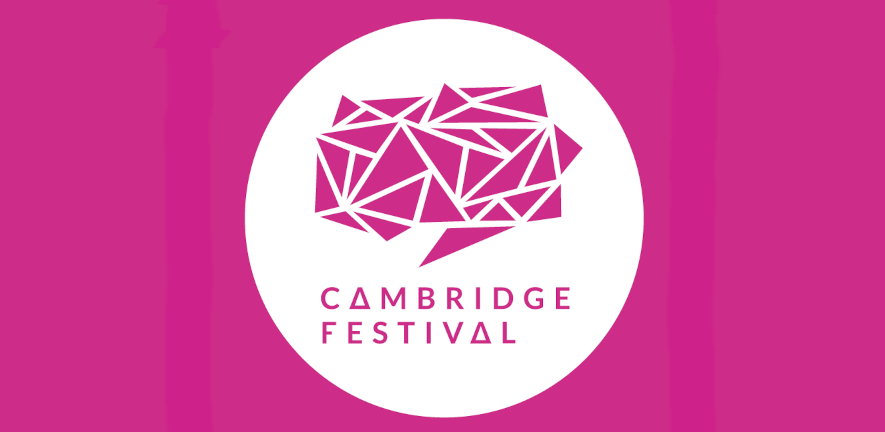
Submitted by Marta Tenconi on Thu, 13/03/2025 - 17:26
Explore Language Sciences at the Cambridge Festival!
19 March – 4 April 2025
Join us at the Cambridge Festival for a fascinating lineup of events exploring the many dimensions of Language Sciences. Discover cutting-edge research from newborn communication signals to how identity drives language change. Meet Furhat, the conversational robot, and explore innovative AI translation tools.
You can browse the full programme and book events at Cambridge Festival 2025.
Here are a few Cambridge Language Sciences picks.
Mother Tongue Other Tongue Celebration Event
Presented by champion slam poet, playwright and author, Joelle Taylor, this year's Laureate Education Project poetry competition, Mother Tongue Other Tongue Celebration Event will have a pop-up language event running alongside.
How identity drives language change
Dr Esther-Miriam Wagner will investigate the most important factors of language change, how much we are all influenced by linguistic role models, why different generations sound different from one another, and how social groups segregate by speaking in a particular way.
Newborn language and communication signals
Hear from Dr Sarah Lloyd-Fox & the Brazelton Centre UK in this mini-talk about newborn language and communication signals.
Baby Talk
When do babies start learning language and how does that change the way they see the world? Bring your baby or toddler to this friendly conversation between Teodora Gliga and Sarah Lloyd-Fox, hosted by Ginny Smith (Braintastic! Science).
Dyslexia, Rhythm, Language and the Developing Brain
In "Dyslexia, Rhythm, Language and the Developing Brain”, hear from Professor Usha Goswami in this talk about how language learning provides the bedrock for reading development and how language works differently in dyslexia.
Tuning into your newborn's voice.
At this multi-activity, family fun session, you can test out the games used in PIPKIN research study with babies, children and families.
Exploring: Language - Colouring corner
This is part of “From drawing first breath to the election booth: A Lifespan Journey” Psychology Investigation Trail. The fourth stop of the trail explores Language. When we finally start acquiring language, how exactly do we do that? Does your native language or your age affect how you see things?
French is an African Language
With over 60% of the world’s French speakers living in Africa—a number projected to exceed 80% within two decades—French is as much an African language as a European one.
The Story Makers
The Story Makers will be a crash course in talking to people and collecting narratives. After a short talk about the role of stories in creating and sustaining society (and ourselves), we will dive right in to the methods and practices of ethnographic interviewing.
Meet Furhat, the conversational robot
Come along to the Department of Computer Science and Technology Open Day to meet Furhat, a very advanced social robot and science ambassador, to chat about computer science and your experiences of it.
Beyond LLMs: the advent of Gen-AI in educational paradigms
Explore the transformative role of Generation AI in reshaping educational paradigms, highlighting new methodologies, personalized learning enhancements, and the profound impact on traditional teaching models.
Can ancient dead languages save today's endangered languages? A tale of identity and visibility
In the next century it is predicted that more than half of the world's 7,000 languages, and up to 90% of its distinctive writing traditions, will be lost. Pippa Steele, director of the VIEWS project, presents new research on the use of writing to support endangered languages - drawing on case studies of language, writing and visible identity in ancient societies.
AI and Translation
With AI translation tools like Google Translate and DeepL getting faster and smarter every year, it’s easy to wonder: Is it worth studying languages when machines can do the work for us? Can they truly replace the nuanced, culturally rich understanding that comes from learning a language? Are they sensitive to the many subtleties of meaning that native speakers would naturally perceive?
Margaret Masterman's Panoramix Game
In a lecture given at Bedford College, London in 1975, on the topic of ‘Life, Death, Resurrection of the Academic Woman’, Margaret Masterman introduced the Panoramix Game. Masterman, a philosopher and computational linguist who founded the Cambridge Language Research Unit and co-founded Lucy Cavendish College, invented the simple computational game to analyse a problem that still persists today: the male dominance of academia’s higher echelons, in spite of the increased number of women completing undergraduate degrees.
New Epigraphic Discoveries from Ancient Bactria
Bactria is the Greek name for the area around the city of Bactra, modern Balkh in northern Afghanistan. During most of the first millennium CE, the principal language of this region was Bactrian, a language related to modern Persian and Pashto but written in a local adaptation of the Greek alphabet.
Speak Back: Crafting Effective Counterspeech
In today's digital age, harmful speech online is a pervasive issue that can have significant negative consequences. We all have likely witnessed someone being targeted by hate or abusive language and while we want to speak up, we are not quite sure what best to say. This workshop will equip participants with the tools and strategies to effectively counter harmful speech and promote a more positive online environment.
